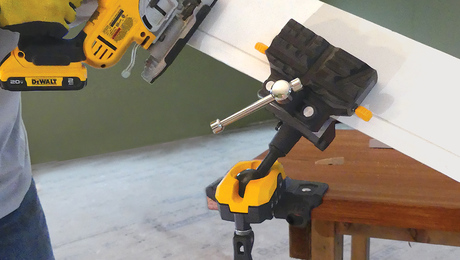Geothermal and ‘ground freezing’?
I’m gathering info and reading all I can about ground source heat pumps; as I’m considering this for my one story 1140 s.f. house in the mid-Atlantic. I read a review from someone who had one of these systems [they didn’t say whether it was “slinky” in trenches or a vertical bore]. They said in the winter, that the refrigerant was dumping so much cold into the ground that the soil around the tubes was freezing — drastically impacting the operation and efficiency. Ever heard of this happening? Was there a problem with the equipment or the installation? thanx.



















Replies
Shouldn't have a problem w/ freezing. Theoretically it MAY be possible. Given the right sizing (slinky or bore holes/size) and flow rate you shouldn't have any freezing. I think freezing would be a sign of a serious problem. How did they know it was freezing? I've seen operational temps pretty low (in the 30s). Another possible issue would be the seasonal swing of the ground temp that, again, might theoretically cause freezing if you failed to run the AC in the summer. But I'd think not. The heat transfer rate should be large enough that freezing shouldn't occur.
A ground-source heat pump literally pumps the heat out of the ground. If the heat isn't replaced rapidly enough with heat from below then the temperature of the soil will drop to a point (around 30-35F, depending on the specifics of the pump) where the heat pump becomes first uneconomical and then ineffective.
Basically, this is an issue of sizing and depth. The coils first must be buried deep enough to be largely unaffected by surface temperatures, and must be spread out over wide enough area to assure sufficient heat transfer from below. How wide an area is needed will be affected to a degree by soil type and moisture. So the design of these things requires someone who knows what he's doing.
Geo in Mid Atlantic
Properly designed loop will eliminate potential for freezing loop. Still need to protect against freezing evaporator. The kind and amount of anti-freeze required in your system will depend on the State you live, the frost depth, your system design. Right sizing the antifreeze is important since the system incurs a pump penalty for the higher viscosity of the fluid.
An IGSPHA certified dealer/installer will be able to install the correct design. You are in a great part of the county for geothermal.
A couple weeks into the operation of an experimental 5T GSHP, where I'd not yet connected the thermistors that would shut down for a frozen evaporator, a circulating valve failed closed.
Froze the brine in evaporator up solid, split the outer casing of the evaporator, so had to rebuild.
Ya betch I had the thermistors connected for the next extended operation.
As far as the trenches go, exactly what Dan said.
My only comment is that 1140 sf is going to be on the marginal end for GSHP payback. Properly insulated that small of a house is probably more economical with air to air heat pump. You can get some really good systems that will be efficient down into the upper teens. Make sure you check your utility for rebates on either air to air or GSHP and also check about special rates on dual meters. Some utilities will connect the heat pumps to a second meter for a lower rate if you will allow them to shut the heat pump down during peak times (summer). You give them the ability to shut down your air conditioning during a peak load and they give you a much better rate (mine is one half the regular rate per KWH)